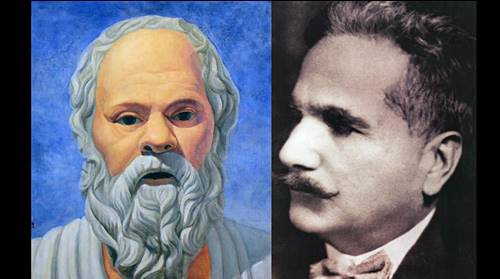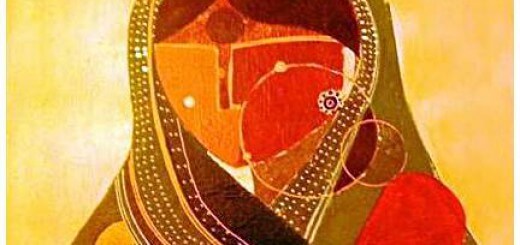Socrates: In Kalam of Allama Iqbal
Socrates was born in 469 BC and lived through the golden age of Athens. In the early years he saw military service, but then he took to the philosophical and mystical way. He adopted the dialectic way of teaching. In his talks with the people he would ask simple questions and use simple and homely illustrations to bring out the point that he wanted to press.
The basis of his ethics was the principle that knowledge is virtue and ignorance is vice. It is related that the oracle at Delphi declared Socrates to be the wisest of men. The Greeks of the period believed that the soul after death passed to the underworld. Socrates identified the soul with conscious personality, with the capacity for rational activity. His teachings were opposed to the beliefs of the people. Two charges were levelled against him, firstly that he disbelieved In the gods of Greece, and secondly that he was corrupting the youth. He was tried and condemned to death by drinking poison . He died in 399 BC. He left no book, but his teachings are contained in ‘The Dialogues of Plato’, a pupil of Socrates.
In his lecture “Knowledge and Religious Experience” Iqbal has referred to Socrates, and the influence of Greek philosophy on Islam. He observes:
“As we all know, Greek philosophy has been a great cultural force in the history of Islam. Yet a careful study of the Quran and the various schools of scholastic theology that arose under the inspiration of Greek thought disclose the remarkable fact that while Greek philosophy very much broadened the outlook of Muslim thinkers, it, on the whole obscured their vision of the Quran. Socrates concentrated his attention on the human world alone. To him the proper study of man was man and not the world of plants, insects and stars. How unlike the spirit of the Quran, which sees in the humble bee a recipient of Divine inspiration and constantly calls upon the reader to observe the perpetual change of the winds, the alteration of day and night, the clouds, the starry heavens, and the planets swimming through infinite space. Asa true disciple of Socrates, Plato despised sense-perception which, in his view yielded mere opinion, and no real knowledge. How unlike the Quran, which regards hearing and sight as most valuable divine gifts and declares them to be accountable to God for their activity in this world’.













